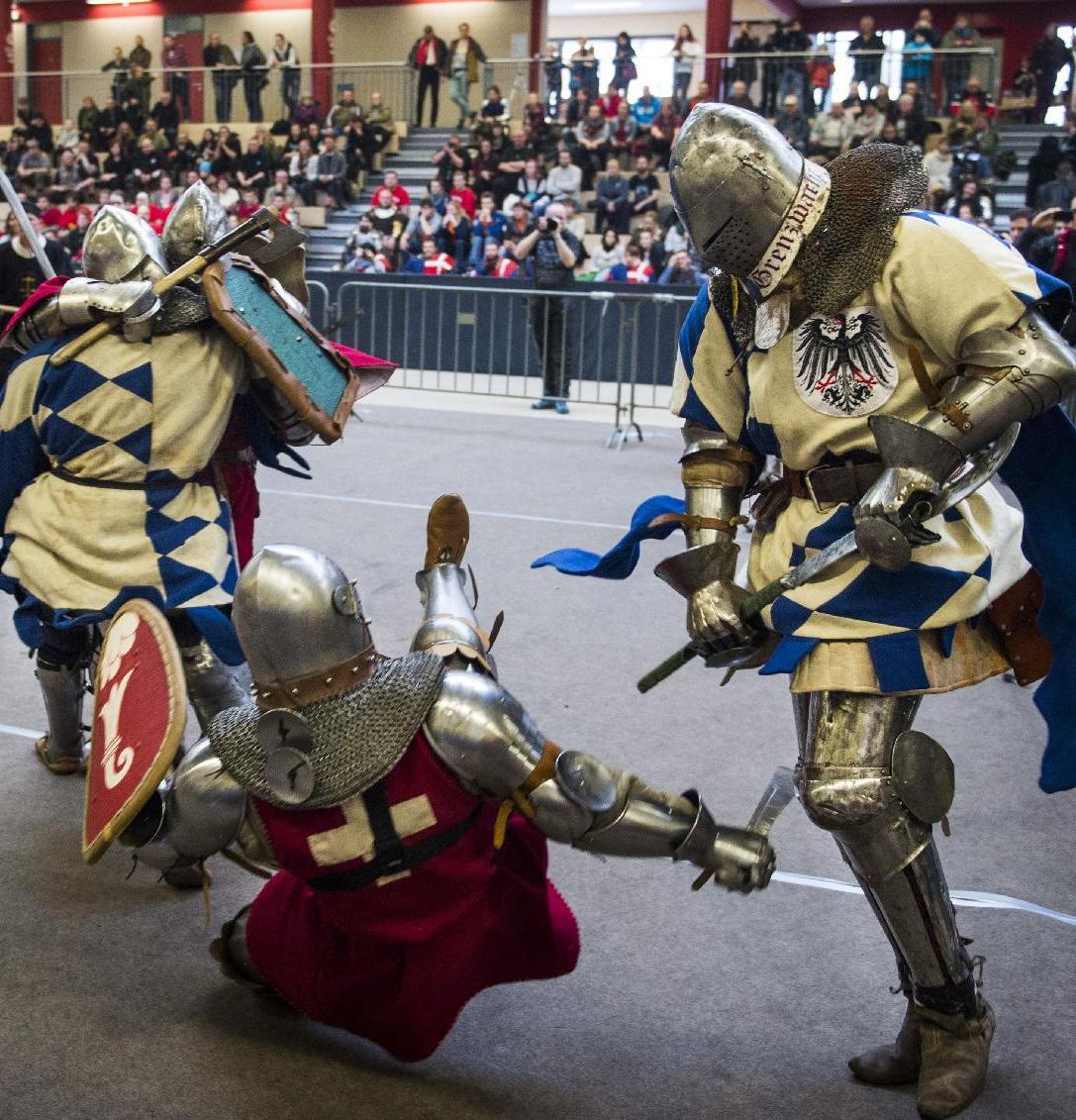A storm of swords: Modern-day knights do (almost) real battle
It’s a place where you can live out your violent medieval fantasies. Welcome to Rise of the Knights III — the third edition of a Medieval Combat tournament held in an innocuous sports hall in Bernau, near Berlin. Teams from across Europe clashed in a day-long series of five-against-five battles on Saturday. Forget about choreographed re-enactment battles where no one gets hurt: Medieval Combat is a full-contact sport where armour-clad participants attack each other armed with an array of weapons. The swords must not be sharpened, while the armour, which costs around $1,357 for a set, must come from a specific historic period. The weapons, ranging from long swords to polearms (wooden shafts with a blade on top), are blunt on all sides, but the fights are very real.
We had one guy sent to hospital with a cut near the eye, lots of bruises, a broken arm and a broken leg.
Adam Nawrot, Vice President of the governing body, the International Medieval Combat Federation (IMCF)
A small team of referees ensures that strict rules are followed during the violent clashes in a fenced-off area. Rather than kill an opponent, as in medieval times, victory simply means putting your opponent on the floor and the winning team is decided by who is left standing in the best of three rounds. Blows to the neck, feet, back of knees, groin and throat are strictly prohibited, but punching, kicking and tripping your opponent is allowed. The winner this year: Poland I defeated the 2014 champions Battle Heritage Lions, made up of the English and Welsh national teams, 2-1. The tournament served as a warm-up for the world championships held at Malbork Castle, a world UNESCO site, near Gdansk, Poland, from April 30 - May 3, when the USA will defend their title.
It’s the complete sport, you have to be in top shape to cope with running around carrying heavy armour — it’s why I don’t drink anymore. I train for about eight hours per week, skills and strategy, plus lots of cardio work like boxing
Julien Roumaud, who drove 18 hours across Europe with the French national team to compete

Odd News